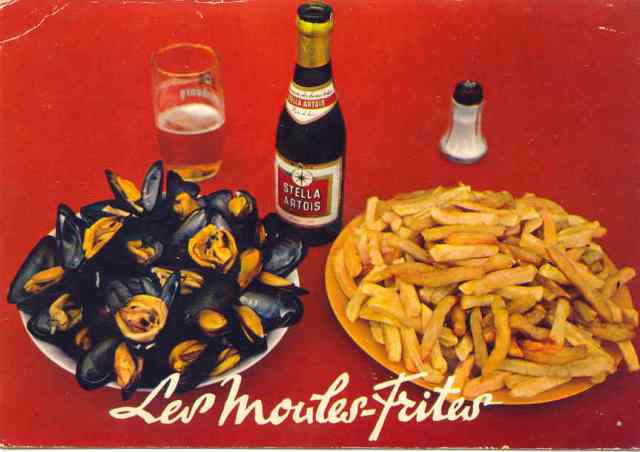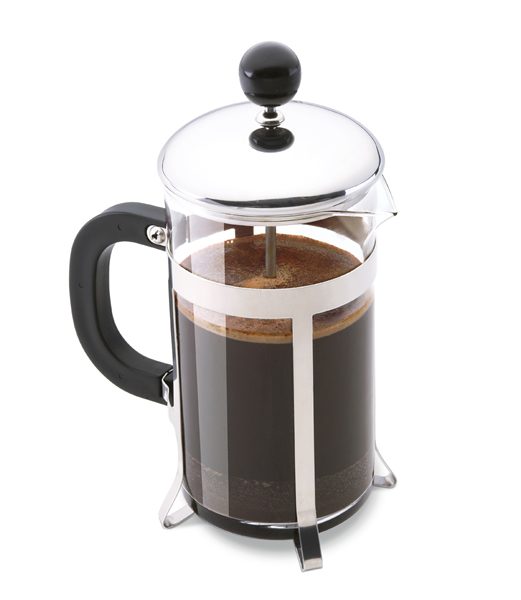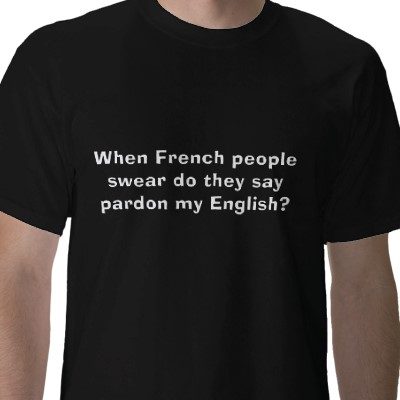French… or not?

Ever since I started visiting the United States, many years ago, a few expressions have puzzled me. They are the ones starting with “French”: French poodle. French toast. French fries. French manucure, and so forth. I quickly realized some of these expressions were as French as… baseball and Corvettes. Why not investigate further?, I thought. This could be fun. Fun it was. And interesting too. Voilà some of my findings. First of all, repeat after me: do not trust everything you hear! Case in point:
|
Oui, l’escargot is French, but there is no such thing
as a snail jockey! |
A favorite topic of this French girl’s: Food. References abound. French toast. French fries. French dressing. French vanilla. French, all? Mais non!
Let’s look at French toast. Everyone’s favorite… brunch? Not so in France, where French toast has traditionally been enjoyed as a dessert and is called Pain Perdu, or lost bread, because it is made with stale bread (“Let’s not waste food!”, my grandma used to say, before whipping up a batch). Pain Perdu is therefore unpretentious fare, simply served with sugar or jam. After my parents’ first cross-atlantic flight to Seattle, we embarked on a two-day road trip around the Olympic Peninsula. We spent our first night in a quaint little town named Forks. There were no vampires to be found in Forks at the time, just pick up trucks (some with shotguns in the back), a couple of tiny restaurants, and deep in the woods, our Bed and Breakfast. In the morning, when we all met at the communal breakfast table, our hostess proudly served her elaborate French toast (Challah bread layered with vanilla cream, fresh strawberries, all generously doused in maple syrup). My mom’s eyes almost popped out of her head: “This is Pain Perdu?!”, she exclaimed. Welcome to the Seattle area in the “fancy” mid-1990’s, maman!
|
Le French Toast, or, as the French say: “Le Pain Perdu”
|
Another favorite: French fries. Even though the French enjoy les frites like the rest of the Western world; even though Thomas Jefferson offered “potatoes served in the French manner” at a White House dinner in 1802, it is commonly believed that the first fries were found in Belgium as early as the 17th century. In fact, a Wikipedia article spins a good tale: The term “French” was likely introduced when American soldiers arrived in Belgium during World War I, and consequently tasted Belgian fries. Why “French fries”? The Belgian soldiers spoke French, of course, alors voilà, the G.I.s instantly gave credit to France for what was likely a Belgian invention. Ah, les Freedom fries! Quelle histoire!
 |
| A classic dish in Belgium, Mussels and Fries |
You are starting to get the picture. What about French dressing? Apparently, this was originally the English (as in “British English”) name for the popular vinaigrette dressing used in many French salads. It seems the original formula morphed into a very different product when la vinaigrette crossed the Atlantic Ocean. This morning, I picked up a bottle of French dressing at my local supermarket and gave it a closer look. What struck me first was the reddish-orange color. I did not see olive oil or herbs listed in the ingredients, but I found paprika and tomato purée (or was it ketchup?)… Hmmmm…
This is getting un peu depressing. Are we to believe that when Americans refer to “French-this” or “French-that”, then said this or that was not created in France? Wait, I know. What about the French poodle? Surely, this one is French. Guess again. It seems this curly little guy originated in Germany (Pudel, meaning “splash in the water”), but later became standardized in France where it is the national dog (“le caniche“). Oh non. French poodle seems to be (yet another) misnomer!

All right. One last try. This is Seattle. We know our coffee. What about the infamous French Press? Mesdames et messieurs, we have a winner… It seems the French press, or cafetière à piston, was invented in France at the end of the 19th century, even though it was patented much later by an Italian designer. Phewww!
 |
I can’t wrap up this little story without mentioning a favorite American expression of mine: “Pardon my French!” Once again, I did some research (or, as we say chez les Savoye, “I Binged it”), and found interesting tidbits… As you know, “Pardon my French!” is commonly used in English-speaking countries in an attempt to disguise profanity as a foreign language. You may remember that funny scene in “Ferry Bueller’s Day off” when Cameron calls Mr Rooney and says, “Pardon my French, but you’re an a–!” Interesting, but where did the expression come from? It seems that in the 19th century, when English people used French words, they always apologized for them (in case other people did not understand French). This is a quote from an English magazine, in the 1830s’: “Bless me, how fat you are grown! – absolutely as round as a ball!: – You will soon be as enbon-point* (excuse my French), as your poor dear father the major!”
And so, I ask you… Do French people use similar expressions? Mais oui! While in France, you may hear people refer to le café américain (American coffee), une cuisine américaine (an American kitchen), or une belle Américaine (referring to… an old-fashioned American car) This may be the topic of another post. In the meantime, let us end this story with a (good) question:
 |
| What do you think? |
A bientôt!
* Embonpoint in French refers to stoutness, or plumpness.

Or click a link below to read the next (or previous) post...allons-y !
Join la Mailing List
Be the first to read stories and travel tips I don’t share anywhere else!
No spam, ever. That’s a promise. Visit the Privacy Policy.



